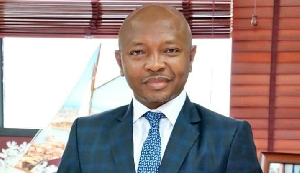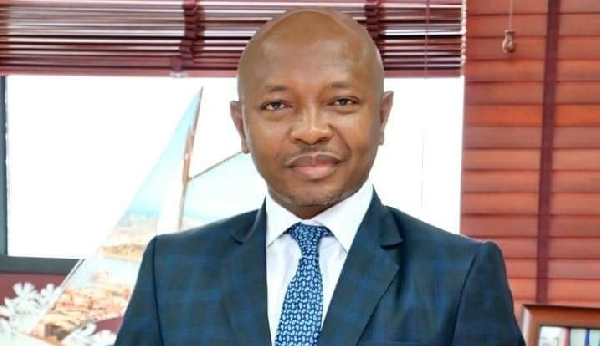 Former MP for Kumbungu, Ras Mubarak
Former MP for Kumbungu, Ras Mubarak
The Accra-Kumasi Highway near Oframase became a graveyard once again. A horrific collision claimed several lives, leaving behind shattered families and a nation grappling with grief.
This was no isolated tragedy—it was the latest chapter in Ghana’s unrelenting road safety crisis, a silent epidemic that claimed over 2,000 lives in 2024 alone.
As a concerned citizen, I penned an open letter to the Honourable Minister for Transport, copied to key stakeholders, demanding an end to the carnage on our roads. This is a story of loss, systemic failure, and a desperate plea for change.
The Accra-Kumasi Highway, a vital artery of commerce and connection, has become a symbol of death. In April 2025, 11 lives were lost at Amanase when a dozing tanker driver crashed into a Sprinter bus. In September 2024, seven perished at Obretema in a similar tragedy.
These are not just numbers—they are mothers, fathers, and children whose lives were snuffed out by preventable failures. Speeding, with 89% of vehicles exceeding safe limits, remains the leading killer. Pothole-riddled roads, single-carriageway stretches, and lax enforcement turn our highways into death traps. Motorbike crashes—often due to missing helmets—account for 40% of accidents.
The pattern is clear. The solutions are known. Yet the bloodshed continues.
Imagine the agony of Ama, a mother from Kumasi, who received a call that her son, Kofi, was among the Oframase victims. Kofi, a 22-year-old university student, was returning home for the holidays.
His dreams, his laughter, his future—gone in an instant because a driver sped recklessly, unchecked by cameras or consequences. Ama’s story is not unique. Thousands of Ghanaians bear the scars of such losses, their grief a silent indictment of a system that has failed them.
In my open letter, I called on the Honourable Minister for Transport to act decisively. The measures are straightforward—but they demand courage:
Install speed cameras and GPS tracking on all commercial vehicles, as Rwanda and Uganda have done, with steep fines (GH₵600 minimum) and licence suspensions for offenders.
Overhaul roads like Accra-Kumasi, widening lanes and fixing potholes.
Enforce helmet use for motorbike riders and impound non-compliant vehicles.
Mandate rest periods for drivers to prevent fatigue-related crashes, with criminal charges for those caught dozing.
Launch graphic awareness campaigns to shock drivers into compliance.
Equip emergency services and build trauma centres along highways.
Fast-track prosecutions to end the culture of impunity.
This letter was not sent in isolation. I copied the Rt. Honourable Speaker of Parliament, the Chief of Staff, the Majority and Minority Leaders, the Minister for Roads and Highways, the Inspector General of Police, the Acting Executive Director of the NRSA, the DVLA, the GPRTU, and all major media houses.
Why? Because transparency and accountability are non-negotiable. This crisis demands a collective response—from policymakers to drivers to ordinary citizens.
The media’s role is critical. By amplifying this call, they can ensure the government feels the weight of public outrage.
The NRSA reports over 1,800 deaths in the first nine months of 2024—a 12.97% rise from 2023. If we do nothing, 2025 will be bloodier.
The ongoing review of the Road Traffic Regulations, 2012, cannot become another bureaucratic delay. It must deliver enforceable laws. The Minister must rally stakeholders to treat road safety as a national emergency, not a footnote.
As I write, I see Ama’s tear-streaked face, clutching Kofi’s photo. Her pain is Ghana’s pain. Our highways were meant to carry dreams—not coffins.
Honourable Minister, the Oframase tragedy must be the tipping point. Act now—or the next crash will be on all our consciences.
Join the movement. Demand safer roads. Share this story. Ghana’s future depends on it.


